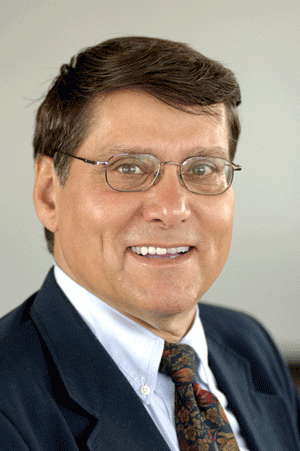Did you see the smiles on the faces of the cops beating up on those lawyers on the street in Pakistan the other day?
It was all over the newspapers. Plainclothes police had a great time, going after well-dressed lawyers with clubs, kicking them and punching them.
It was a takeoff on the old lawyer joke: “What’s better than a lawyer at the bottom of the ocean?”

The Pakistani police answer was: “Two hundred lawyers getting whacked on the street.”
One poor fellow in his dark suit and white shirt didn’t stand a chance. His starched French cuffs stuck out like billboard ads. What a target. He should have known better.
“Sir, you were dressed as if for High Court day in Lahore.
“Remember the Surêté du Québec at Montebello. But forget about the police-issue leather boots.”
The Pakistani lawyers were rightly protesting the sudden imposition last week by President Gen. Pervez Musharraf of pervasive emergency measures across the nation.
They amount to martial law and give police the right, as our government would call it, “to take back the streets.”
Lawyers owning the streets? Hmmm. Usually we think of lawyers as representing grubby, hung-over protesters in court, not as coat-and-tie protesters arrested on the streets.
“I demand to see my lawyer! Oops, I am my lawyer.”
Strange place, that Pakistan, where the lawyers are the protesters, while protesters stay off the streets. Maybe they know better. Liberal foreign affairs critic Bob Rae called the emergency measures, “A tremendous step backwards for Pakistan,” but didn’t have a word to say about beating up lawyers. And Rae is a lawyer. When your own don’t stand up for you.
Prime Minister Stephen Harper had nothing to say. But he’s not a lawyer. He was still waiting for President George W. Bush to tell him what to say.
As for Bush, he mumbled that Musharraf has been “a strong fighter against extremists . . .” Yeah. Right. Lawyers and judges as extremists.
Gen. Musharraf’s actions were calculated. They come in advance of a Pakistani Supreme Court decision this week on whether the general’s recent election as president was constitutionally legal because at the time he was still army chief. (Gen. Rick Hillier please note.)
The fight between the judiciary and Musharraf goes back to last spring. Chief Justice Iftikhar Chaudhry refused to quit under pressure and became a popular hero, a symbol of the resistance to Musharraf. (Chief Justice Beverley McLachlin please note.)
Musharraf showed his power over the judiciary last week by firing seven of the 11 judges of the Pakistani Supreme Court. Even Vic Toews never dreamed of that.
Musharraf’s men entered the back door of the courthouse and escorted the judges to their homes. In Canada, the last time we looked, the Supreme Court judges were still being driven to work every day in government limos.
Musharraf appointed new judges more to his liking, and made it a crime to criticize the new judges. So much for news media independence. Thankfully, criticizing a judge is not a crime in Canada. Otherwise, Harper might be short a few MPs.
Musharraf also obliged 300 provincial court judges to take an oath of loyalty to him. Those who refused were summarily fired. Now there’s an idea for Canada.
Harper could bring back Toews and have him administer the oath of loyalty: “I hereby promise to take into full account all the legislative decisions of Canada’s New Government, and ignore as much as I can everything that is in that ‘liberal-inspired’ Charter of Rights and Freedoms.”
If that doesn’t work, Harper could always bring in cops to help pick new judges. The cops could pick each other. Or as we say in the Reform party: “To heck with the courts.”
So what if cops can’t judge corporate law cases? The Criminal Code will suffice. Ask any Harper cabinet minister.
Court Beadle: “Sgt. O’Reilly, will you be handling the civil law cases today?”
Sgt. O’Reilly: “Faith and Begorra, that I will, me boy.”
Here judges who are not loyal to the Conservative government get to keep their jobs and don’t have to go back to chasing ambulances. There was another problem in Pakistan last week. The lawyers were not chasing the ambulances; they were in them.
Musharraf blamed his need for emergency measures on what he called “a hostile judiciary.” Where have we heard that before? Shades of an “activist judiciary.”
Musharraf promised that “once we correct the pillars of the judiciary” he would remove his military uniform and rule as a civilian president. Whoopee!
The general never explained in his television speech why the need to correct “pillars of the judiciary.” Are they like Stéphane Dion’s “three pillars” of Canadian society, or Roy Romanow’s “five pillars” of health care?
Perhaps it was lost in the translation from Urdu, but don’t expect Harper to be knocking down any Canadian “pillars” just yet, except maybe the pillars of the Liberal Party of Canada.
Richard Cleroux is a freelance reporter and columnist on Parliament Hill.

 The Pakistani police answer was: “Two hundred lawyers getting whacked on the street.”
The Pakistani police answer was: “Two hundred lawyers getting whacked on the street.”